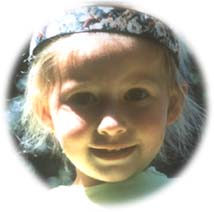|
|
|
"I'm much more bored in the middle of civilization than in the middle of nowhere."
Environmental Education student 
Human beings are the children of wilderness. It is part of who we are. We were created by nature, but in our computerized, highly urbanized life we tend to forget this. Since time immemorial, children have spent their time chasing after butterflies, climbing trees, and marvelling at rainbows. Children are naturally enthralled with nature, but because the land and our lifestyles have been so altered today, many young people don't have the opportunity to be exposed to the great outdoors. The danger in this is that when we forget that we are a part of wilderness, we fail to realize that by altering our environment we threaten our own survival, and thus endanger ourselves as a people and as a species.
|
"One cannot but be in awe when (one) contemplates the mysteries of eternity, of life, of the marvelous structure of reality. It is enough if one tries to merely comprehend a little of this mystery each day. Never lose a holy curiosity."
Albert Einstein
|
|
 A major challenge in the maintenance and stewardship of parks and wilderness in BC and the world is a waning awareness of their history, their role in our survival and their current state of risk. As urbanization continues to increase, people have less contact with nature in their daily lives. This disconnection means that those, especially children, who are growing up without ever having known wilderness, will be less likely to stand up for its protection. If we lose the protection under which parks and wild spaces currently exist, we lose the opportunity to experience true wilderness for all time. A major challenge in the maintenance and stewardship of parks and wilderness in BC and the world is a waning awareness of their history, their role in our survival and their current state of risk. As urbanization continues to increase, people have less contact with nature in their daily lives. This disconnection means that those, especially children, who are growing up without ever having known wilderness, will be less likely to stand up for its protection. If we lose the protection under which parks and wild spaces currently exist, we lose the opportunity to experience true wilderness for all time.
One solution to this problem is environmental education. Environmental education can be conducted in two ways, the first being the traditional or 'fact oriented' approach. In this students learn to recite their ecological footprint, the percent of parkland, and the rate at which the rainforest is being destroyed. The second method attempts to touch something more primal in its students. This method facilitates the development of a "wilderness epiphany" resulting in a valuing and sense of responsibility towards nature.
Students of environmental education come to realize that the protection or destruction of wild spaces can have global effects. If enough individuals can be touched by wilderness then a voice will be created for its preservation. A voice which travels farther and yells louder than all the environmental agencies combined, the voice of the global public. Once the people demand protection, companies, industries and governments will no longer be able to ignore this demand.
|
"British Columbia is home to some of the last great wild lands in North America, and in the world."
|
|
Thus we invite you to use these pages so you and your children can experience the park treasures that conservationists and the public have worked so hard to protect.
British Columbia is home to some of the last great wild lands in North America, and in the world. But much of the original forests in BC have already been cut and what remains is disappearing quickly. Take your children to experience what BC has to offer while it is still here, and join us in our efforts to protect more great wilderness.
|
"A single protein molecule or a single finger print, a single syllable on the radio or a single idea of yours, implies the whole historical reach of stellar and organic evolution. It is enough to make you tingle all the time."
John Platt, Biophysicist
Let us teach our children.
|
|
|
|

